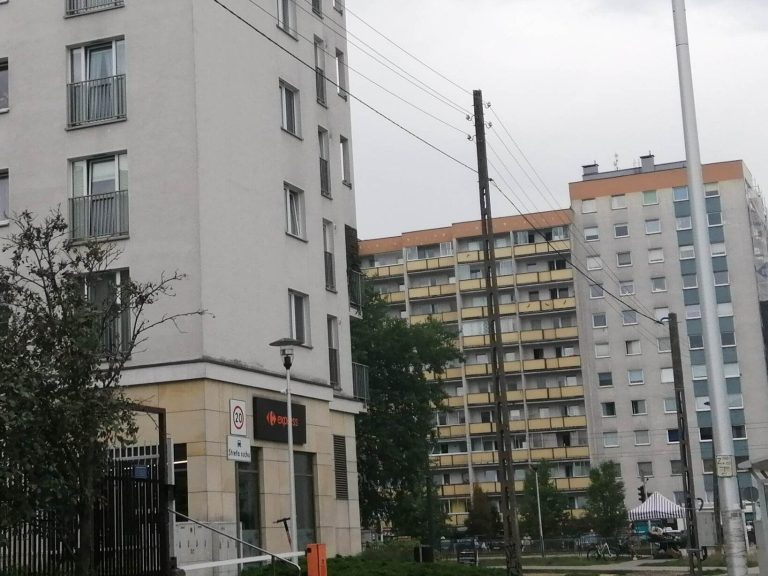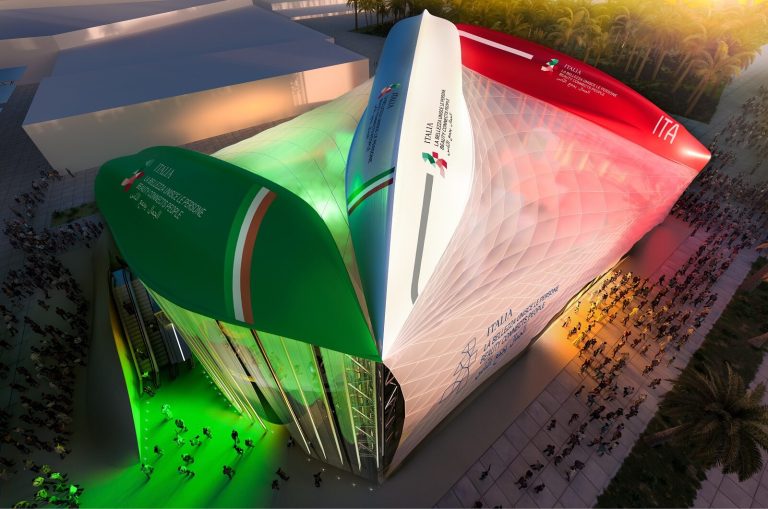The Green Deal brought European farmers to the streets. The government and the opposition united the government and the opposition

Farmers across Europe are opposing the Green Deal, a package of EU laws that are intended to enable Europe to achieve climate neutrality by 2050. With regard to agriculture, it assumes, among others: limiting fertilization and allocating part of agricultural land to space for wild animals, plants and pollinating insects. The provisions of the European Green Deal are unanimously criticized by the current and former Minister of Agriculture.
Farmers' protests continue not only in Poland – farmers in France, Spain and Belgium also took to the roads. The specificity of the protests in our country is the opposition to the introduction of cheap products from Ukraine to our market: farmers are demanding customs duties, thanks to which Ukrainian agricultural products are significantly cheaper than Polish ones. The second demand is common to protesters across Europe: a call to break with the Green Deal and the restrictions it is intended to impose on food producers.
What is the Green Deal?
The European Green Deal is an initiative of the European Union – a set of regulations that are intended to ensure that the EU achieves climate neutrality before 2050. Consistent implementation of the bans is expected to result in a reduction in net greenhouse gas emissions by at least 55% by 2030 compared to the 1990 level. EU politicians argue that the Green Deal is not only a necessity dictated by the need to protect the environment, but also a way to make various industry sectors, including agriculture, more competitive.
The Green Deal for agriculture was presented in 2019 and raised farmers' concerns from the beginning, but the pandemic that broke out a year later sidelined discussions about the future of agriculture in the context of the imposed changes. Time passed and those interested realized that the new rigors mentioned by the European Commission were not empty announcements, but actions that would actually be taken in the near future. And here, farmers from all over Europe were struck with fear, because when they calculated everything, many of them became convinced that they would not be able to bear the burden of adapting to the new requirements.
Polish farmers raised objections to subsequent agriculture ministers. However, in their opinion, they were not taken into account – hence the decision to organize a large protest, lasting many days and taking various forms.
From farm to table – the most important assumptions
The European Green Deal (hereinafter referred to as EZŁ) refers to various sectors of the economy: production, transport, and regulates the issue of heating houses and apartments. In the part intended for agriculture, the Farm to Fork Strategy announced in May 2020 is of great importance.). Sustainable production techniques, limiting the use of pesticides and fertilizers, and harmonious cooperation at all stages of food production are to be promoted.
The EU is transforming the way food is produced and consumed in Europe to:
-
reduce the environmental footprint of food systems
-
strengthen resilience to crises
-
continue to provide healthy and affordable food for future generations as well.
Food security is a priority, but the strategy also aims to:
-
ensure – within the planet's capabilities – a sufficient supply of affordable and nutritious food
-
halve the use of pesticides and fertilizers and the sale of antimicrobials
-
increase the amount of land devoted to organic farming
-
promote more sustainable food consumption and healthy eating
-
reduce food losses and waste
-
prevent food fraud in the supply chain
-
improve animal welfare.
The transition to a more environmentally friendly food system is expected to create new business opportunities, positively impacting the income of companies in the agri-food sector.
In October 2020, the Council adopted conclusions on the Farm to Fork strategy, endorsing the objective of developing a European sustainable food system: from production to consumption. Member States stressed the need to ensure:
-
sufficient and affordable food, while contributing to the EU achieving climate neutrality by 2050.
-
decent income and strong support for raw material producers
-
competitiveness of EU agriculture in the world.
Less fertilizers, precise fertilization
Farmers are afraid of changes in reducing nutrient losses by 50%. without deterioration of soil quality, so as to consequently reduce the use of fertilizers by at least 20%. in the 2030 perspective
This goal is to be achieved through the use of balanced fertilization and better management of nitrogen and phosphorus, which will lead to a reduced demand for minerals. Precise fertilization techniques are to be promoted, as well as the recycling of organic waste into fertilizers from renewable sources.
Another goal of EZŁ is to acquire 10 percent. agricultural land with high diversity landscape elements. According to this assumption, part of agricultural areas should provide space for wild animals, plants, pollinating insects and natural pest regulators.
For this 10 percent uses may include, among others: buffer zones, fallow land, hedgerows, non-productive trees and ponds. The presence of this type of areas on agricultural land, on the one hand, limits production space, but on the other hand, it contributes to carbon dioxide absorption, limiting soil erosion and improving water conditions (better retention), we read in the analysis prepared by the Jagiellonian Club.
Moreover, in 2030 at least 25 percent agricultural land in the EU is to be devoted to organic farming.
The above-mentioned Jagiellonian Club notes that in recent years our country has already seen a significant increase in the percentage of agricultural land used for organic farming. In 2019, the percentage of land under organic farming in the EU was 8.5%, while in 2010 it was 5.1%. Nevertheless, a further increase in the share of organic farming in land use from 8.5% to as much as 25%. seems to be a very ambitious task in the 2030 perspective.
Politicians about the European Green Deal. Telus and Siekierski agree
Agriculture ministers in the former and current governments are exceptionally unanimous on the issue of the European Green Deal.
MP Robert Telus (PiS), even before he became minister, said that “Polish agriculture, compared to what is available in Western Europe (…) is ecological.” – We produce much better and much healthier food – he argued.
– True ecology has the face of a mature Polish farmer, because he cooperates most with the environment – he noted. In his opinion, in terms of the Green Deal and ecological agriculture, Poland “is an example” because in other countries, as he said, “the environment is being destroyed through the use of chemicals.”
The current minister, Czesław Siekierski, does not spare words of criticism even in Brussels. On Monday, several hours before the start of the protests in Warsaw, he said at a meeting of EU agriculture ministers that “the EC imposed too large, irrational and expensive requirements of the Green Deal, which were supposed to serve the environment and counteract climate change, but in fact led to the bankruptcy of many farms.” .
– This does not mean that we should not work to defend the climate, but we need to do it in a different way. (…) The EC must verify its plans – added Siekierski at a meeting with journalists.
– In order to meet the expectations of Polish farmers, I applied for a waiver of fallowing. To waive fallowing as a special exception in 2024. Then, start the process of amending these basic acts so that fallowing can be replaced with a form of eco-scheme, i.e. it is voluntary that fallowing can be done and farmers will be paid for it, he proposed.
– I also asked for simplifications when it comes to crop rotation and administrative requirements. So as not to punish mistakes made if they were not made on purpose to cheat and stretch the EU budget for some payments. So that farmers can submit statements, not photos, that they have performed a given activity correctly – said Czesław Siekierski.
Deputy Minister Michał Kołodziejczak, who recently led farmers' protests, is also an implacable opponent of EZŁ. A few days ago he said on Radio Zet that “the Green Deal is a nightmare for Poland” and he could not imagine that “Polish farmers would use half as much active substances, while the Dutch, who use four times more of them, should also reduce this quantity by half.
– I can't imagine that 80 percent the land was not plowed for the winter. The EU wants us to have 4 percent. they left the land fallow, it's crazy, he said.
The European Commission has given up some responsibilities in agriculture
However, RMF FM correspondent in Brussels, Katarzyna Szymańska-Borginon, noted that it cannot be said that the European Commission is completely deaf to farmers' criticism. She said that most of the burdens of the Green Deal in agriculture have already been withdrawn – this is, among others, thanks to the Commissioner for Agriculture, Janusz Wojciechowski, who “came into conflict” with the creator of the Green Deal, Frans Timmermans, and the head of the Commission, Ursula von der Leyen, on this matter.
Agriculture has been excluded from the mandatory 90% CO2 reduction. until 2040. Mandatory fallowing of 4% was withdrawn. land. The EC also withdrew the plan to halve pesticides by 2030.






